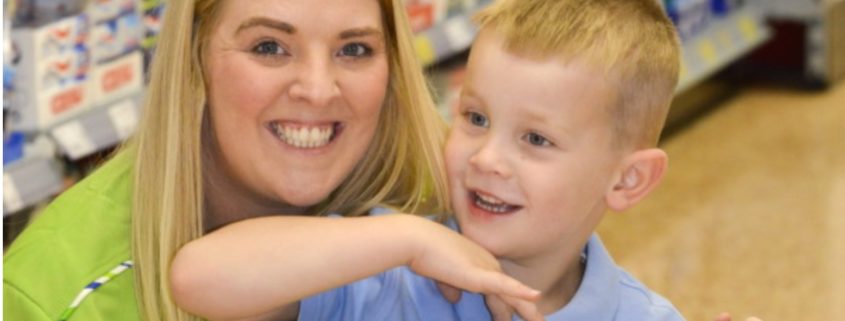What Is the ‘Best Age’ to Get Diagnosed With Autism?
Last month, I accompanied my husband to an appointment where he was finally diagnosed with autism spectrum disorder. He’d had months of assessments to get to this place. What is particularly interesting about my husband’s diagnosis is that he is just weeks away from being 60 years old.
He lived his whole life having autism and not knowing it, yet always feeling that he was different.
In contrast, our son was diagnosed at 3 and our daughter, the month before her fifth birthday.
It all got me thinking: What is the best age to be diagnosed if you have autism?
Here are some pros and cons of being diagnosed with autism at different ages.
Toddlers
I would classify my son as just a toddler when he was diagnosed.
The advantages of being diagnosed as a toddler:
- Access to early intervention, which has been proven to enhance children’s development.
- May make securing the right schooling later easier.
- Allows parents the opportunity to “come to terms” with the diagnosis sooner, meaning they are often more positive about their child’s diagnosis.
- Parents can learn strategies for better parenting a child on the spectrum sooner.
- Financial support may be secured sooner.
The disadvantages of being diagnosed as a toddler:
- A child or adult has a lifelong diagnosis “label” that may not adequately explain their current difficulties because they were diagnosed so young.
- Schooling and education could base a child’s capabilities on what is written in a diagnosis report that is no longer relevant to the growing child. This could limit their opportunities and experiences.
- Diagnosing too young may increase the chances of an incorrect diagnosis being given, which is damaging and dangerous.
- Parents may limit their child based on a diagnosis alone.
Pre-School Years
This was when my daughter was diagnosed.
The advantages of being diagnosed as a preschooler:
- Not yet too late for early intervention, which research has proven to help.
- Makes securing the right education easier.
- Gives parents time to learn and understand about autism and adapt any parenting strategies required for the child’s needs.
- Allows school to prepare better and have adaptions in place for the child starting formal education (if required).
- Gives everyone a better understanding of the child’s needs.
- The child will grow up with a better understanding of why they may be “different” than others, which lessens their susceptibility to mental health struggles later in life.
- Financial support can be secured more easily, if it’s required.
The disadvantages of being diagnosed as a preschooler:
- Lifelong diagnosis given to a young child who may develop and grow to the point the diagnosis no longer matches their needs.
- Some challenges with autism do not manifest fully until later, so may have been missed and need reassessing later.
- The child may be limited by educators or parents based on a diagnosis alone.
- The child may miss out on opportunities such as mainstream education because they have been “labelled’” as autistic.
- The child may always see themselves as different from a young age, so they might exclude themselves as a matter of habit.
Primary School Years (Ages 5–12)
This is when the majority of children currently receive their diagnosis.
The advantages of being diagnosed in primary school:
- Better and clearer understanding of the implications and complications of any diagnosis, so it’s more likely that co-morbid conditions such as ADHD, anxiety or learning difficulties are correctly diagnosed.
- Education can still be better tailored to suit the strengths and weaknesses of the individual.
- Diagnosis route is often quicker because there is more professional support.
- As the child ages, diagnosis will likely better reflect further difficulties the child may face and be more meaningful.
- The child is likely able to understand (or begin to understand) their own diagnosis, which has proven to be beneficial for their own mental health.
- Not too late for financial support to be put in place.
- Still time for parents to gain understanding and adapt parenting techniques as required.
The disadvantages of being diagnosed in primary school:
- The diagnosis route may be hindered if school does not see any difficulties, but family does.
- Some children (especially girls) have already learnt to mask and copy, so spotting traits can be more difficult.
- The child may have to move schools as the extent of their diagnosis means mainstream cannot adequately support them.
- Children can suddenly feel different than their peers, which can be upsetting for them.
- As a child ages, it can become far more of a challenge to help them with anxiety or repetitive behaviours because these likely have become a habit over time.
- Some schools do not support children well, which can lead to bullying.
Teenage Years (13–19)
These are challenging years for most, but even more so for those on the autism spectrum.
The advantages of being diagnosed as a teenager:
- Teenager may see a diagnosis as liberating, helping to explain who they are.
- If diagnosed and supported well, it can give some teenagers a reason to be proud of themselves and help them become more self-aware.
- Parents may find a diagnosis at this stage a relief that the struggles their child may have had were not due to “poor parenting.”
- Future careers can be planned around the young person’s skills and strengths.
- Support can be put in place to help socially or educationally, as required.
The disadvantages of being diagnosed as a teenager:
- Self-esteem can be problematic, as teenagers feel let down and failed by a system that did not pick up on their struggles sooner.
- Diagnosis is usually discussed at this stage due to a crisis that could have been avoided if diagnosed sooner (mental health issues, violence, self-harming, etc.).
- By this point, the teenager could be very socially isolated or have an identity crisis that requires extensive support.
- Securing financial help can be difficult due to the young person’s age.
Adulthood (19+)
As knowledge of autism increases, more and more adults are being diagnosed in their twenties, thirties, forties and beyond.
The advantage of late diagnosis as an adult:
- Finally understanding and explaining much about their life, bringing a sense of relief.
- Mental health may improve as the adult finally understands themselves.
- People may become more tolerant due to the diagnosis.
- May perhaps be entitled to some financial support depending on severity of diagnosis.
The disadvantages of late diagnosis as an adult:
- Anger and frustration at not having been diagnosed sooner.
- May have acquired a long list of previous diagnoses, such as anxiety, depression or eating disorders that could have been greatly improved with an earlier diagnosis of autism.
- Lack of support may have meant academic underachievement and socially limiting life experiences.
Having all of my family diagnosed with autism has, by far, been a positive experience for my family regardless of what age my children and husband were diagnosed. For us, diagnosis has brought answers, understanding and support, and changed how I parent. It is about grabbing onto the positives and running with them, no matter at what age you get the diagnosis.
There really is no “best age” to get diagnosed because every person is an individual and every circumstance is unique.
If you think your child (no matter what their age) or you, yourself, may be on the autistic spectrum, seek out professional support via a doctor, as it really is never too late to know.
Three, 5 or almost 60… It was the right time for them, and that’s what matters most.










